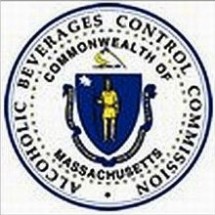Law Offices of John P. Connell, P.C.: A nightclub, hotel, restaurant or other establishment may obtain a “pouring license,” or general on-premises license, which authorizes the sale and consumption of alcoholic beverages on premises under M.G.L. c. 138, s. 12. Depending on whether the applicant is an individual, a partnership or a corporation, there may be different restrictions governing the issuance of this pouring license.
In general, all applicants for liquor licenses, whether they are an individual, a partnership or a corporation, must be either 21 years of age or be comprised of owners that are 21 years of age. The licensees’ “managers of record,” must also be at least 21 years of age, an individual of US citizenship, and “satisfactory to both the local and state licensing authorities with respect to his or her character.” Some municipalities even require the “manager of record” to reside within the Commonwealth of Massachusetts.
Additionally, a majority of directors for a corporate licensee must be U.S. Citizens. Applicants or owners of a corporate applicant that have been “convicted” of a federal or state “narcotics law” will be disqualified from obtaining a liquor license outright, no matter how long ago the conviction occurred. Convictions for other crimes may or may not cause an applicant to be considered unsatisfactory in “character,” depending on the nature of the conviction and when the person was convicted. Applicants with criminal convictions for crimes not involving “narcotics laws” are advised to check with the local licensing authority before incurring the cost of submitting an application.
Although not an out-right disqualification, applicants with a proposed premise located within a five-hundred foot radius of a school or church will be subject to more stringent regulations. In this situation, the local licensing authority must hold a hearing to determine that “the premises are not detrimental to the educational and spiritual activities of that church or school” and state this determination in writing; otherwise the applicant will not be issued a liquor license pursuant to M.G.L. c. 138, s. 16C.
Unlike “off-premise” package store licenses, there is no limit on the number of “on-premise” pouring licenses a person can possess or have an interest in within the Commonwealth of Massachusetts.
CONTRIBUTED BY COURTNEY MCGEE

